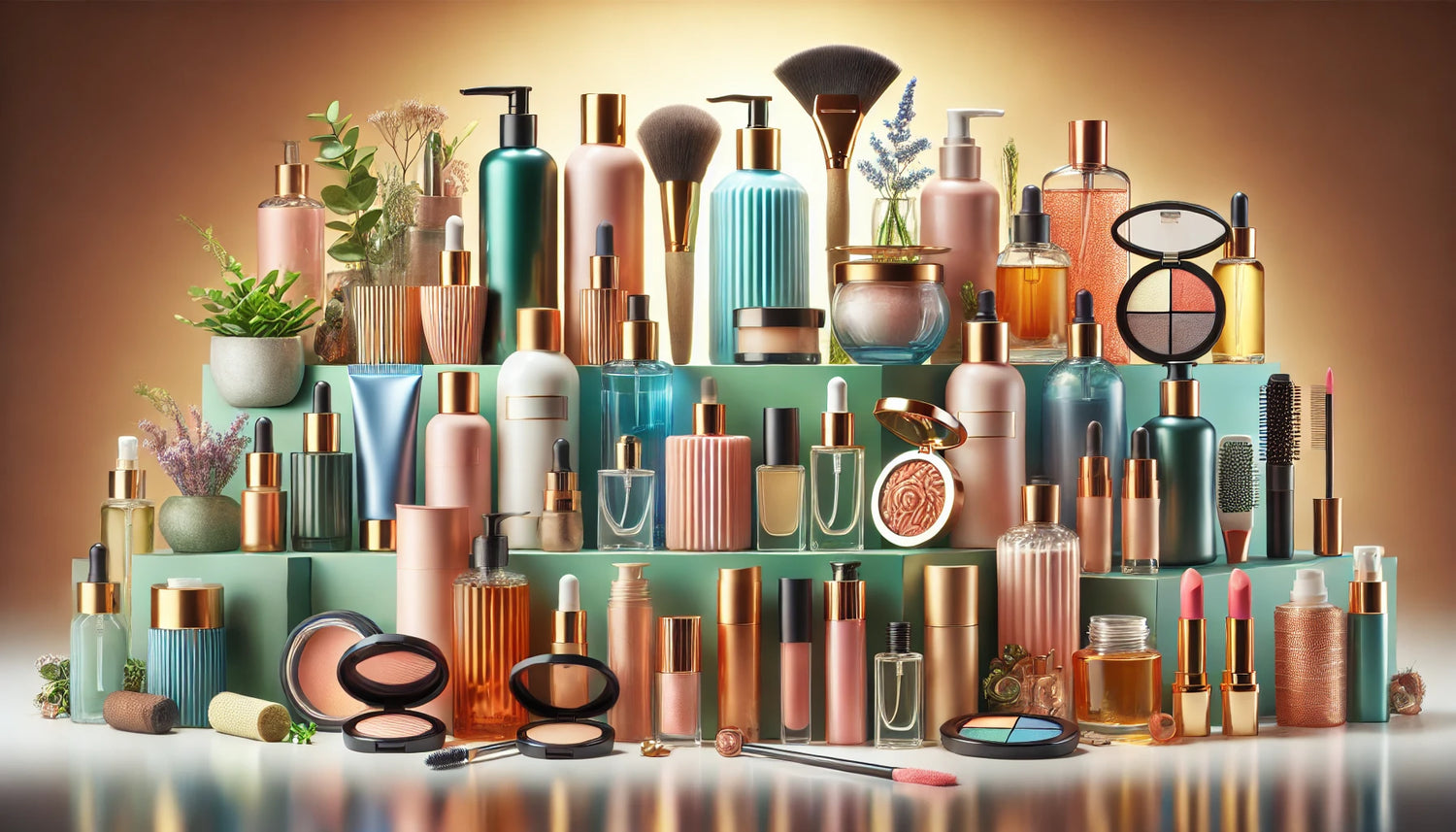Introduction
The cosmetic industry is vast and ever-evolving, offering a plethora of products ranging from skincare and makeup to haircare and fragrances. For businesses and entrepreneurs, understanding which cosmetic products are most profitable is crucial to making informed decisions and maximizing profits. This article delves into the most profitable segments of the cosmetic market, exploring factors that drive profitability and the latest trends shaping consumer preferences.
Understanding the Cosmetic Market
The global cosmetic market is a multi-billion-dollar industry that continues to grow year over year. With changing consumer behaviors and preferences, staying updated on market trends is essential for businesses looking to capitalize on profitable opportunities. The market is segmented into various categories, including skincare, makeup, haircare, and more, each with its unique consumer base and profitability potential.
Recent trends indicate a growing demand for natural and organic products, driven by consumers' increasing awareness of health and environmental concerns. Moreover, the rise of e-commerce has revolutionized the way consumers purchase cosmetics, providing businesses with new avenues to reach their audience and boost profitability.
Why Profitability Matters in Cosmetics
In the highly competitive cosmetic industry, profitability is a key indicator of a product's success. Factors such as production costs, pricing strategies, and market demand play significant roles in determining profitability. For instance, luxury cosmetics often have higher profit margins due to their premium pricing, while mass-market products rely on volume sales to generate profits.
Understanding the balance between cost and profit margins is crucial. While some products may require significant upfront investment in terms of research and development, packaging, and marketing, they can yield high returns if positioned correctly in the market.
Skincare Products
Skincare is one of the most lucrative segments in the cosmetic industry. The demand for skincare products such as moisturizers, serums, cleansers, and anti-aging treatments continues to grow as consumers prioritize skin health. The profitability of skincare products is often driven by their perceived effectiveness, brand reputation, and consumer loyalty.
High-end skincare brands that offer innovative and scientifically-backed products can command premium prices, leading to substantial profit margins. Additionally, the trend towards natural and organic skincare products has opened up new opportunities for profitability in this sector.
Makeup Products
Makeup products, including foundations, lipsticks, eyeshadows, and more, are perennial favorites among consumers. The makeup segment is highly diverse, catering to various skin tones, preferences, and occasions. Products that offer unique features, such as long-lasting formulas or eco-friendly packaging, can capture significant market share and profitability.
Trends such as the "no-makeup" makeup look and inclusive beauty, which emphasizes products suitable for a wide range of skin tones, are shaping the market. Brands that successfully tap into these trends with innovative products can enjoy considerable profitability.
Haircare Products
The haircare market encompasses a wide range of products, from shampoos and conditioners to styling products and treatments. The growing focus on hair health and maintenance has led to an increased demand for specialized products, such as sulfate-free shampoos, hair masks, and scalp treatments.
Haircare products often see strong profitability due to the repeat purchase nature of the category. Additionally, the rising popularity of haircare brands that emphasize natural ingredients,focusing on different types of hair and ethical practices has contributed to increased consumer spending in this segment.
Men's Grooming Products
The men's grooming market has experienced significant growth, with an increasing number of men investing in grooming products beyond the basics. This includes skincare, haircare, and fragrance products specifically tailored for men.
Men's grooming products often offer high profitability due to the growing acceptance and normalization of male grooming. As more men become conscious of their grooming routines, the demand for specialized products continues to rise, presenting lucrative opportunities for businesses.
Organic and Natural Cosmetics
The shift towards organic and natural cosmetics reflects a broader consumer trend towards health and sustainability. Products in this category are often perceived as safer and more environmentally friendly, appealing to a conscious consumer base.
While organic and natural cosmetics can sometimes have higher production costs, they often command premium prices, leading to strong profit margins. Brands that can effectively market the benefits of natural ingredients and eco-friendly practices can thrive in this segment.
Luxury Cosmetics
Luxury cosmetics represent the pinnacle of the beauty industry, characterized by high-quality ingredients, exquisite packaging, and exclusive branding. Products in this category include high-end skincare, makeup, and fragrances, often endorsed by celebrities and influencers.
The profitability of luxury cosmetics is significantly higher than mass-market products, as consumers are willing to pay a premium for perceived value and exclusivity. Successful luxury brands maintain their profitability through strong branding, limited editions, and high-quality product offerings.
Branding and Marketing in Cosmetics
Strong branding and effective marketing are critical to the success of cosmetic products. A well-crafted brand image can differentiate products in a crowded market, build consumer trust, and drive sales.
Marketing strategies such as social media campaigns, influencer collaborations, and content marketing are essential tools for reaching and engaging with consumers. Successful case studies show that brands with consistent and authentic marketing messages often enjoy higher profitability.
E-commerce and Online Sales
The growth of e-commerce has transformed the cosmetic industry, providing brands with new opportunities to reach a global audience. Online sales channels offer convenience and a wider selection of products, attracting a diverse consumer base.
To maximize profitability in e-commerce, brands need to focus on user-friendly websites, engaging content, and efficient logistics. Additionally, digital marketing strategies, including SEO, social media advertising, and email marketing, are crucial for driving traffic and sales.
Sustainability and Ethical Cosmetics
The rising demand for sustainable and ethical cosmetics reflects a growing consumer awareness of environmental and social issues. Products that emphasize cruelty-free, vegan, and eco-friendly practices are increasingly popular.
While these products may come with higher production costs, they attract a dedicated consumer base willing to pay a premium for ethical choices. Brands that prioritize sustainability not only contribute to social good but also enhance their brand reputation and profitability.
Future Trends in the Cosmetic Industry
The cosmetic industry is continually evolving, with new trends and technologies shaping consumer preferences. Innovations such as personalized skincare, AI-driven beauty tools, and sustainable packaging are set to redefine the market.
Brands that stay ahead of these trends and invest in research and development can capitalize on emerging opportunities. The future of the cosmetic industry promises exciting possibilities for profitability and growth.
How to Choose Trending Cosmetic Products
Choosing a trending and profitable cosmetic products involves careful consideration of market trends, consumer demand, and cost analysis. Businesses should conduct thorough market research to identify gaps and opportunities, and assess the potential profitability of different product categories.
Factors such as product differentiation, branding, pricing strategies, and distribution channels play crucial roles in determining a product's success. By focusing on high-demand products and leveraging effective marketing strategies, brands can maximize their profitability.
Challenges in the Cosmetic Market
The cosmetic market is not without its challenges. Regulatory hurdles, market saturation, and shifting consumer preferences can impact profitability. Brands must navigate these challenges by staying compliant with regulations, continuously innovating, and maintaining strong consumer relationships.
Addressing these challenges proactively can help businesses sustain profitability and thrive in a competitive market.
Conclusion
In conclusion, the cosmetic industry offers numerous opportunities for profitability across various product categories. From skincare and makeup to haircare and fragrances, each segment has its unique appeal and potential for high returns. By understanding market trends, consumer preferences, and effective marketing strategies, businesses can successfully navigate the cosmetic market and maximize their profitability.
Frequently Asked Questions
Which cosmetic products have the highest profit margins? High-end skincare, luxury fragrances, and organic cosmetics often have the highest profit margins due to their premium pricing and perceived value.
What are the most popular skincare products? Popular skincare products include moisturizers, serums, cleansers, and anti-aging treatments. These products are in high demand due to the growing focus on skin health.
How do trends impact the profitability cosmetic and personal care products? Trends such as inclusive beauty and eco-friendly packaging influence consumer preferences and can drive the profitability of makeup products by attracting a wider audience.
What role does e-commerce play in the cosmetic industry? E-commerce plays a crucial role in the cosmetic industry by providing brands with a platform to reach a global audience, offer a wider selection of products, and engage with consumers through digital marketing strategies.
How important is branding in the cosmetic market? Branding is vital in the cosmetic market as it differentiates products, builds consumer trust, and drives sales. A strong brand image can significantly impact a product's profitability.
Conclusion
Navigating the cosmetic market requires a deep understanding of consumer behavior, market trends, and effective business strategies. By focusing on high-demand and profitable products, such as skincare, luxury cosmetics, and organic items, brands can achieve significant success. Staying ahead of industry trends and investing in strong branding and marketing efforts are key to maximizing profitability in the competitive world of cosmetics.



1 comment
Emmanuel Fru Nsuh
I’ve read and how much can someone start with interms of finance
I’ve read and how much can someone start with interms of finance